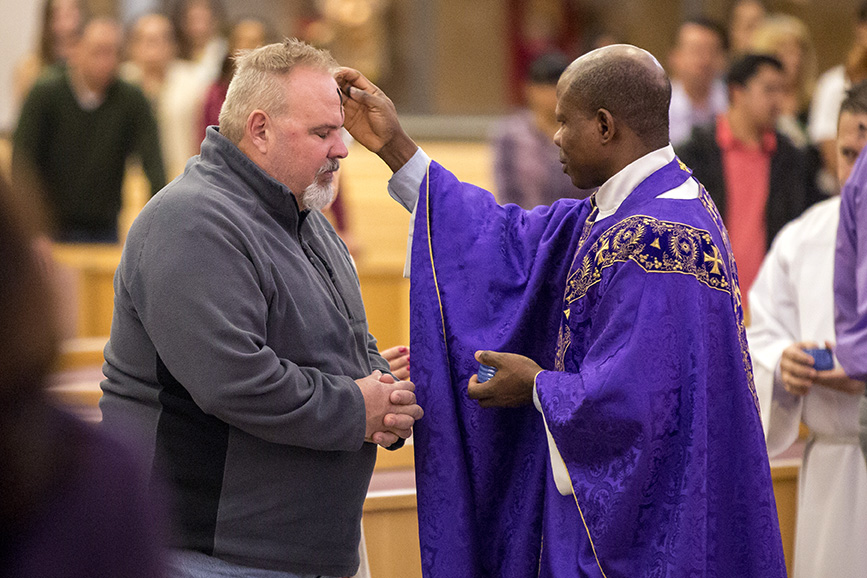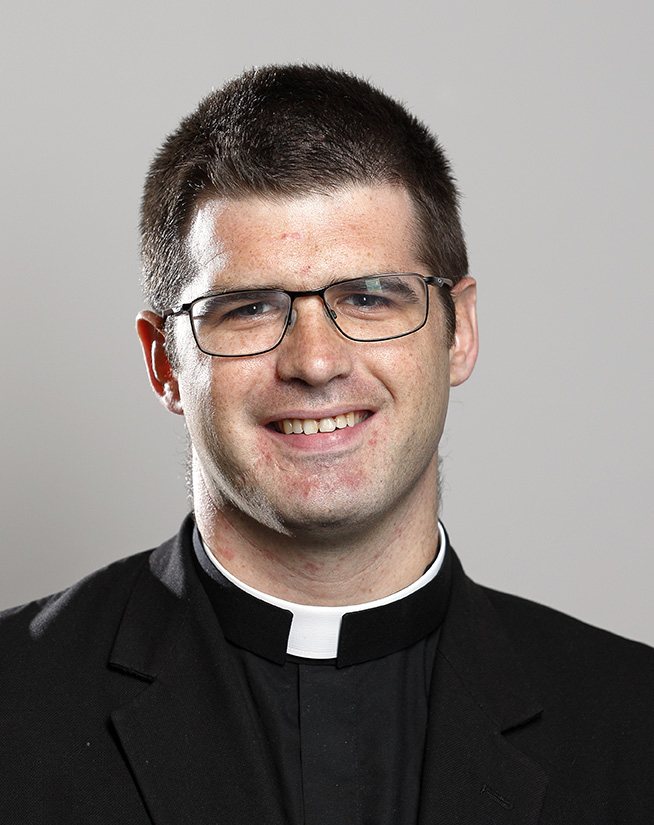

When I was in college there was a group of students who didn’t always practice their faith, but when Ash Wednesday rolled around all decided to band together in giving up a few particular sins common among college students.
At first this seemed like a noble pursuit in holiness and accountability. However, once Easter rolled around there were “celebrations,” which were merely opportunities to commit these same sins all over again.
It occurred to me then, “Is this the way to celebrate the resurrection of Christ? By sinning?” Christ’s death on the cross on Good Friday and His resurrection on Easter Sunday are meant to free us from our sins. To celebrate said freedom by sinning is a contradiction.
This story of the college students is not too uncommon, nor is it exclusive to university campuses, but this mentality misses the mark on what Lent is truly about. Regardless of where we may be on our faith journey, as Catholics we are always called to reject sin.

In this regard, every day is Ash Wednesday, for every day we are called to “repent and believe in the Gospel.” One shouldn’t just give up a sin for Lent, we should give up sins for life.
Yes, we are all sinners, and we wrestle with our sinfulness our entire lives, but the intent should never be to give up sin only for a certain amount of time but rather always to be striving for holiness.
Ash Wednesday marks the beginning of Lent, a time set aside to help us with that goal of attaining holiness. Repenting from our sins goes beyond just not sinning any more, it is the expression of our sorrow to God for the sins we have already committed.
Believing in the Gospel requires not just an intellectual assent or a simple head nod, “yeah, sure I believe that stuff,” but it begs actions that demonstrate that “faith without works is dead” (Jas 2:26).
Thankfully the Church in her wisdom and tradition provides us with some guidance as to what kinds of actions we are to take to grow in a deeper relationship with Christ during Lent: prayer, fasting and almsgiving.
Take note: Nowhere in those three does one find “give up sinning.” That effort is needed every day, throughout the year, throughout our lives.
So, while we wage the battle with sin all the time, it is still important to take advantage of the season of Lent and the Church’s encouraged practices of prayer, fasting and almsgiving as a way of moving beyond the mere removal of sin and entering into a more intimate relationship with God.
Prayer
Ash Wednesday is a great time to take inventory of our prayer life: what’s going well, what’s missing. Everyone is at a different stage in his or her journey with God, so the results of the inventory will look different for each of us.
Sometimes we begin Lent with lofty goals of adding quite a bit to our prayer regimen, only to find ourselves overwhelmed and give up. Instead perhaps we ought to consider adding just one small practice and doing it well and consistently.
Depending upon the current routine, a simple addition could be something as easy as spending a few minutes each morning with the readings of the day. When Easter rolls around, the new practice will already be a part of our new prayer routine and be something we can carry forward beyond Lent.
Fasting
This is the one that everyone seems to focus on. “What are you giving up for Lent?” everyone asks. Again, the response shouldn’t be, “Sin.” Fasting goes beyond; it’s the free choice to give up something good as a form of sacrifice, an expression of sorrow for our sins.
By giving up something good it shouldn’t be something that will then lead us further from God, but instead draw us closer to Him. Perhaps we can think of worldly things to which we have an unhealthy attachment.
By getting rid of something that isn’t a sin, we are able to build up self-discipline (helpful for struggles with temptation and sin), as well as to grow closer to God by becoming more detached from worldly things that are ultimately superfluous and unnecessary.
Almsgiving
Ash Wednesday begins the journey of Lent that ultimately leads us to the cross, to Jesus’ ultimate act of love, the sacrificial gift of His very self. We are called to imitate that same kind of love through sacrifice.
One of the ways we can imitate that sacrifice is through our financial offering to the Church, charitable organizations and those in need. The challenge is to see this giving not from a place of obligation, because of the tax credit or from what’s leftover at the end.
Christ gave of Himself so that we might have eternal life. We too must see our giving as a sacrifice for the benefit of others.
Lent provides us time to engage in an “audit” of our almsgiving. To ask ourselves about the motivations behind our giving and to see how we might be able to more fully imitate Christ by increasing our sacrificial gift, not for our own benefit but for others.





